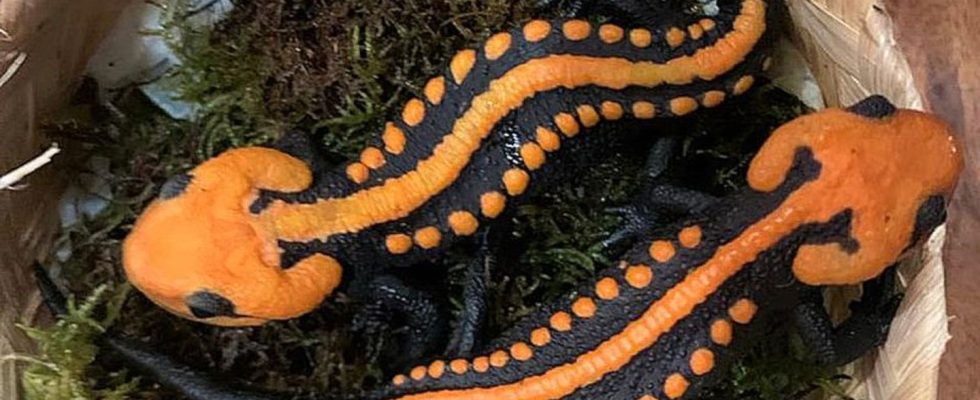Science
Colorful: New species of crocodile newt discovered in Vietnam
Tylototriton ngoclinhensis crocodile newts. photo
© Prof. Dr. Tao Thien Nguyen/-/dpa
It is colorful and extremely rare: A new species of crocodile newt inspires researchers in Vietnam. Now it’s about saving him.
A previously unknown species of crocodile newt has been discovered in southern Vietnam. The amphibian with a bright orange head and orange stripes and dots on its back was tracked down by a Vietnamese-German research team in the Ngoc Linh Nature Reserve last year.
The protected area is considered a hotspot of amphibian diversity. A study of the spectacular animal has now been published in the journal Zoo Keys. The crocodile newt was given the scientific name Tylototriton ngoclinhensis.
“This is an extraordinary discovery as it is one of the most colorful species in the genus Tylototriton,” lead author Trung My Phung was quoted as saying in a statement. For the first time a crocodile newt species from the central highlands Vietnam have been proven. The discovery at altitudes of more than 1800 meters also represents an altitude record for the entire genus.
Species classified as “endangered”
In order to save the just discovered species from extinction, the team is already working on breeding measures to preserve it. Because the crocodile newt from Ngoc Linh belongs to the group of so-called microendemic species, which are most threatened due to their tiny distribution area and their presumably small population size.
“Unfortunately, in addition to its special zoogeographical location and rarity, its particularly colorful appearance should also make it extremely attractive to illegal collectors,” the experts warned. In their study, they recommend classifying Tylototriton ngoclinhensis as “Endangered” in the Red List of the International Union for Conservation of Nature (IUCN).
Another recently discovered microendemic species of crocodile newt (Tylototriton vietnamensis) has already been successfully propagated, said co-author Stefan Ziegler, aquarium curator and Vietnam project coordinator at Cologne Zoo. A total of more than 350 individuals have already been successfully bred.

